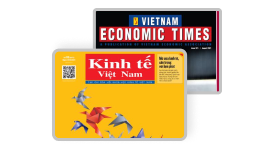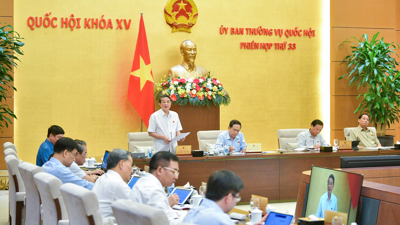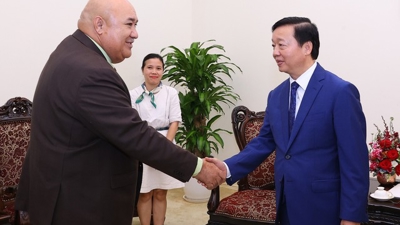Vietnam's National Assembly Convenes Extraordinary Session to Address Human Resource Matters
As Vietnam’s legislative body prepares for its 7th extraordinary session, the focus turns to vital personnel decisions crucial for the nation’s governance.

Vietnam’s National Assembly Standing Committee has just announced the 7th Extraordinary Session, slated to discuss critical personnel issues, setting the stage for legislative deliberations.
Proposed adjustments and additions to legislative projects highlight the session’s significance, with multiple laws and resolutions under scrutiny for potential amendment and approval.
As preparations intensify, efforts to engage with constituents underscore the importance of public input in shaping legislative priorities and decisions.
In a bid to address pressing personnel matters within its purview, the National Assembly Standing Committee has authorized the convening of an extraordinary session. Scheduled for the afternoon of May 2, 2024, at the National Assembly House in Hanoi, this session marks a critical juncture in Vietnam’s legislative agenda.
General Secretary of the National Assembly Bui Van Cuong outlined the session’s framework in document No. 3561/TTKQH-TT, emphasizing adherence to constitutional and legal provisions. The agenda prioritizes deliberations on personnel affairs, acknowledging their pivotal role in steering the nation’s governance.
The upcoming session, part of the broader 15th National Assembly, is slated to commence on May 20, with proceedings expected to conclude on June 28. This timeframe encompasses two distinct phases, each centered on legislative deliberations conducted at the National Assembly House.
Adjustments and Additions
Integral to the session’s agenda are proposed adjustments and additions to legislative projects. The National Assembly Standing Committee has recommended modifications to the progress of one draft law, alongside the inclusion of four additional laws and two draft resolutions.
Among the proposed amendments is the Law amending and supplementing articles of the Law on Standards and Technical Regulations. Originally slated for discussion at the 7th session and passage at the 8th session, this law now awaits deliberation at the 9th meeting following adjustments.
Furthermore, the Committee has proposed the addition of significant legislation, including the Law on Fire Prevention, Fighting, and Rescue, and the amended Law on Prevention and Combat of Human Trafficking.
Additional projects, such as amendments to the Value Added Tax Law and the Law on Management and Use of Weapons, Explosives, and Support Tools, underscore the breadth of legislative considerations.
In alignment with streamlined procedures, resolutions addressing specific development mechanisms and policies for provinces like Nghe An and cities like Da Nang have also garnered attention.
These resolutions, intended for piloting urban governance models and facilitating regional development, highlight the government’s commitment to tailored policy solutions.
Engaging the Electorate
Central to the session’s success is robust engagement with constituents. The National Assembly Standing Committee has directed legislative bodies to collaborate with the Vietnam Fatherland Front Committee at provincial and city levels. This partnership aims to facilitate meaningful dialogue with voters, soliciting their feedback and recommendations.
Ahead of the session, delegates are tasked with organizing voter meetings, gathering opinions, and compiling comprehensive reports for submission to the Standing Committee. This concerted effort underscores the importance of public input in shaping legislative priorities and fostering accountability within Vietnam’s democratic framework.
As Vietnam’s National Assembly prepares to convene its 7th extraordinary session, the spotlight remains on critical personnel decisions and legislative priorities. With an ambitious agenda and a commitment to inclusive governance, the session heralds a pivotal moment in Vietnam’s legislative landscape.
Amidst this backdrop, Vietnam's National Assembly Chairman Vuong Dinh Hue tendered his resignation on April 26.
His decision, in accordance with the Central Committee's approval, entails relinquishing his positions as a member of the Politburo, the 13th Central Committee, and Chairman of the 15th National Assembly of the Socialist Republic of Vietnam for the term 2021-2026.







